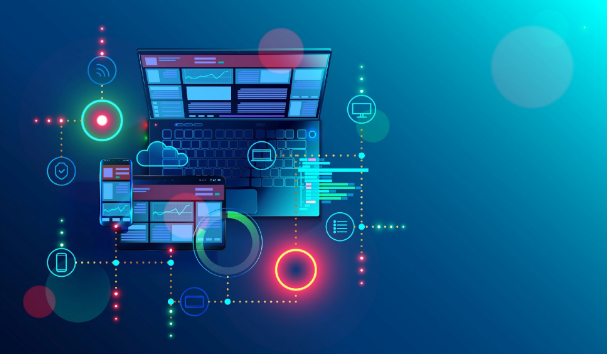In the ever-evolving landscape of healthcare, technological advancements play a pivotal role in enhancing patient care, optimizing processes, and improving overall efficiency. Among the many transformative technologies, the integration of the Internet of Things (IoT) with healthcare software development has emerged as a key driver of innovation. This blog explores the synergies between healthcare software development and IoT, shedding light on the transformative power of their integration.
Understanding Healthcare Software Development
Healthcare software development is a dynamic field that encompasses the creation, customization, and implementation of software solutions tailored to meet the specific needs of the healthcare industry. These solutions range from electronic health records (EHR) systems to telemedicine platforms, enabling healthcare professionals to streamline their workflows and provide better patient care.
Enhancing Patient Data Management with EHR Systems
Electronic Health Records (EHR) systems are a cornerstone of healthcare software development. These systems digitize patient information, providing a centralized and easily accessible repository for healthcare professionals. When integrated with IoT devices, EHR systems gain real-time data input, ensuring that healthcare providers have the most up-to-date information at their fingertips. This integration not only enhances data accuracy but also facilitates timely decision-making.
The Role of IoT in Real-Time Data Capture
Telemedicine Revolution: Connecting Patients and Healthcare Providers
Telemedicine has gained significant traction, especially in the wake of global events that emphasized the need for remote healthcare solutions. Healthcare software development has played a pivotal role in creating intuitive telemedicine platforms. When combined with IoT devices, these platforms can monitor patients remotely, enabling healthcare professionals to track vital signs, medication adherence, and other crucial metrics. This not only enhances patient care but also reduces the burden on healthcare facilities.
IoT-enabled Remote Patient Monitoring
Understanding IoT in Healthcare
The Internet of Things (IoT) refers to the network of interconnected devices that can collect and exchange data. In healthcare, IoT devices range from wearable fitness trackers to sophisticated medical sensors, each contributing to a more comprehensive and personalized approach to patient care.
Wearable Devices: Pioneering Preventive Healthcare
Wearable devices, such as fitness trackers and smartwatches, have become ubiquitous in our daily lives. In healthcare, these devices play a vital role in promoting preventive care. When integrated with healthcare software, wearable devices can provide real-time health data, allowing individuals to monitor their well-being and facilitating early intervention when needed.
The Future of Preventive Healthcare with Wearables
Smart Sensors and Remote Monitoring
IoT-enabled smart sensors have transformed the landscape of remote patient monitoring. These sensors can be incorporated into various medical devices to collect and transmit real-time data to healthcare professionals. From glucose monitors for diabetic patients to cardiac monitors for individuals with heart conditions, the integration of IoT ensures that healthcare providers receive timely updates on patient health.
Advancements in Remote Monitoring Technologies
Driving Innovation: The Synergy of Healthcare Software Development and IoT
Data Security and Interoperability Challenges
As the healthcare industry embraces the integration of IoT with software development, it also grapples with challenges such as data security and interoperability. Ensuring the confidentiality and integrity of patient data is paramount, necessitating robust security measures. Additionally, achieving seamless interoperability between diverse IoT devices and software platforms is crucial for realizing the full potential of this integration.
Addressing Security Concerns in IoT-enabled Healthcare
Artificial Intelligence (AI) and Predictive Analytics
The combination of healthcare software development, IoT, and artificial intelligence opens new frontiers in predictive analytics. By leveraging machine learning algorithms on the vast datasets generated by IoT devices, healthcare professionals can anticipate patient needs, identify trends, and implement proactive interventions. This not only improves patient outcomes but also contributes to more efficient resource allocation within healthcare systems.
The Role of AI in Predictive Healthcare
Future Perspectives and Conclusion
Emerging Trends in Healthcare Software Development and IoT Integration
Looking ahead, several trends are poised to shape the future of healthcare innovation. From the proliferation of edge computing in IoT to the integration of blockchain for enhanced data security, staying abreast of these developments is essential for healthcare professionals and software developers alike.
The Next Frontier: Edge Computing and Blockchain in Healthcare
In conclusion, the symbiotic relationship between healthcare software development and the Internet of Things is steering the industry toward unprecedented innovation. As we navigate the challenges and embrace the opportunities presented by this integration, the future of healthcare holds promise for more personalized, efficient, and patient-centric care. The ongoing collaboration between software developers and IoT experts is key to unlocking the full potential of these transformative technologies in the realm of healthcare.
